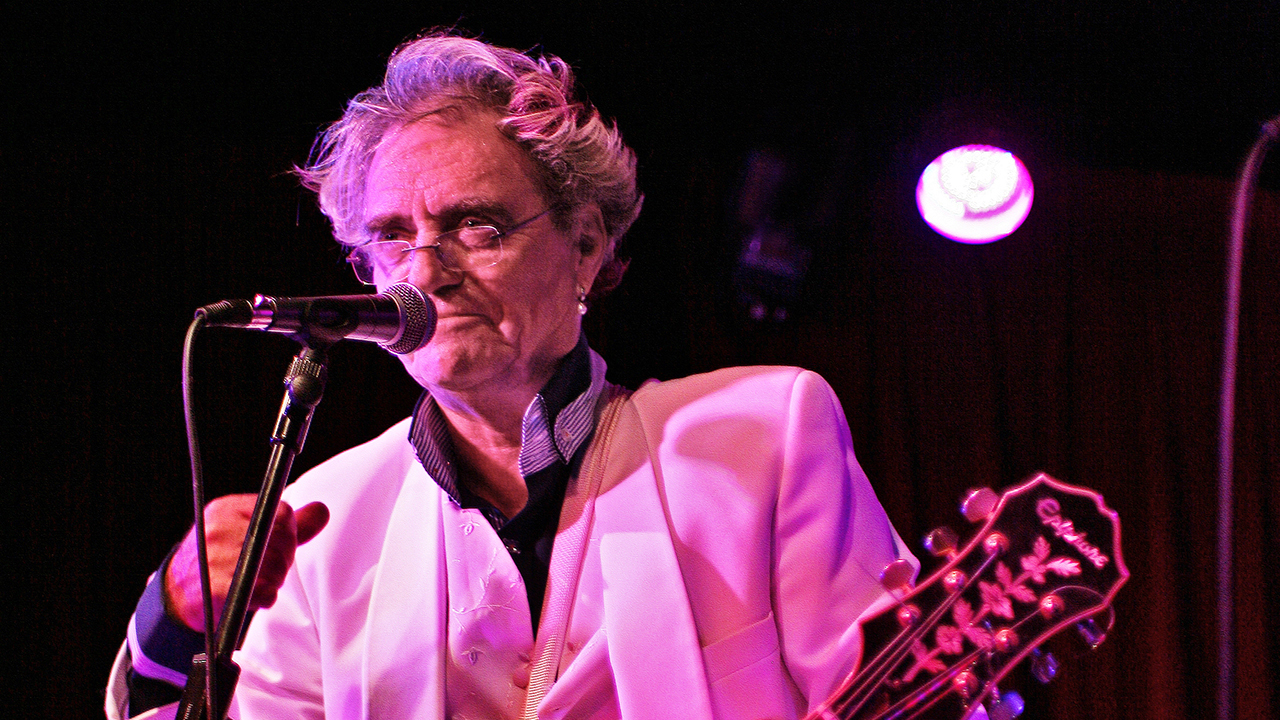Best known for turning down the chance to be the singer in Led Zeppelin and Deep Purple, Terry Reid is about to release The Other Side Of The River, a collection of out-takes and alternative takes of material from River, his album first issued by Atlantic Records in 1973.
Now 66 years old and based in California, Reid (who also guests on Joe Perry’s forthcoming solo album) refuses to dwell on the negative ahead of a 12-date tour of Britain and Ireland.
Where had the unused tracks that became The Other Side Of The River lain for all these years?
They were found by a gentleman who works from Warner Brothers Records in Chicago. He was in England looking for the masters for River. And it was like a scene from Raiders Of The Lost Ark – rows and rows of boxes of tapes. When he played the extra songs he didn’t recognise any of them.
How many of the album’s songs haven’t we heard before?
What we’ve got here are six never-before-heard compositions [along with five alternative takes of songs on River].
River was two years in the making, on different sides of the Atlantic and with two producers: Eddy Offord and Tom Dowd. That sounds nightmareish.
I was tearing my hair out until Ahmet Ertegun [Atlantic supremo] brought in Tom Dowd, who’d worked on every record I loved from my youth, from Wilson Pickett to Aretha Franklin. Tom turned things from a total tragedy to making me feel like a kid in a candy store.
River has gained cult appeal over the years but sold poorly at the time.
It escaped. It wasn’t released [laughs]. Just like most of my albums. I am humbled by the respect it received belatedly. But you’ve got to keep your sense of humour about that stuff or it’ll drive you nuts.
Will the upcoming tour focus on material from the River era?
I’ll be playing a lot of those songs, yeah. But when we get to Ireland I’ve got a piper and we’re working on getting on a fiddle player to play on a chunk of the set. I’ve wanted to do that for years. And we’ll film it, too.
On Joe Perry’s forthcoming solo album, you sing on the track I’ll Do Happiness (which was on last issue’s free cover disc).
Well, we’ve done four of them now. Joe’s such a sweetheart, and the thing between us is so comfortable. He said: “I’ve got ten others”. The four I’ve done are all really different, and who knows if they’ll all get used. But we sound good together, his guitar roaring and me screaming in the background. It’s full-on rock’n’roll.
Last issue Joe Perry told us: “Terry still sings like a legend. They used to call him superlungs, and you can hear why.”
Tell Joe I’ll pay him later for the compliment.
Lots of singers lose their voice when they’re in their sixties…
[Interrupting]Ah, it’s mind over matter. It’ll happen if you sit there worrying about it. With the early stuff I did I sound like a canary on acid, but now I’ve settled into myself.
Your website’s biography says that meeting producer Mickie Most in the late 1960s was both the making and the breaking of you. Can you elaborate?
Look, I’m not knocking Mickie for what he had done previously. He made some great records that still stand up. But every dog has its day, and when we became involved the industry was starting to change. Once the Beatles did Sgt Pepper all bets were off. But Mickey couldn’t handle it. He was stuck in his ways and he got left behind.
You were preparing to make a debut album with Most when Jimmy Page famously called you in August ’68, about a new band he was forming.
It was the old dartboard theory for Jimmy; he was calling everyone – me, Steve Marriott, Steve Winwood, all of us. I was very flattered, but I was off to support the Stones. I told him I’d be back soon, but Jimmy couldn’t wait. He knew he had a limited window of opportunity. The way I saw it, The Yardbirds had broken up about thirty times. They changed members like most of us changed underwear. So I suggested this kid I knew [Robert Plant] who looked like a Greek god.
It was later suggested by the NME that Page’s “heavy reputation as a Crowley-obsessed black magician” had played a part in your decision not to take up his offer.
Get the fuck out of town [laughs]. No. I was playing games with the interviewer. He turned it all around, seeking the kudos of having broken the story.
Not too long afterwards you also turned down the job in Deep Purple that went to Ian Gillan. How come?
I love Ritchie Blackmore. I’d known him since the days with [Screaming Lord Sutch And] The Savages. When he called, the hard rock of Deep Purple really wasn’t my thing. I didn’t see too many ballads in there. So I thanked him and said it wasn’t for me.
So many household names pop in and out of your life story. For example, in 1971 you were flown out to St Tropez to sing at Mick Jagger’s wedding to Bianca. It would make a great movie.
Well, that’s been suggested several times down the years, but it would take the right people to make it happen. Who would play me as a five-year-old old standing on an apple box singing, or in later years? I know Johnny Depp, and he’s told me about the politics of making movies, which are very complicated. But in the future, who knows? One thing’s for sure: there’d certainly be a few jokes in it.
You don’t sound too upset over the missed opportunities.
No. Everyone’s looking for a train crash, aren’t they? That’s not me at all.

